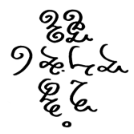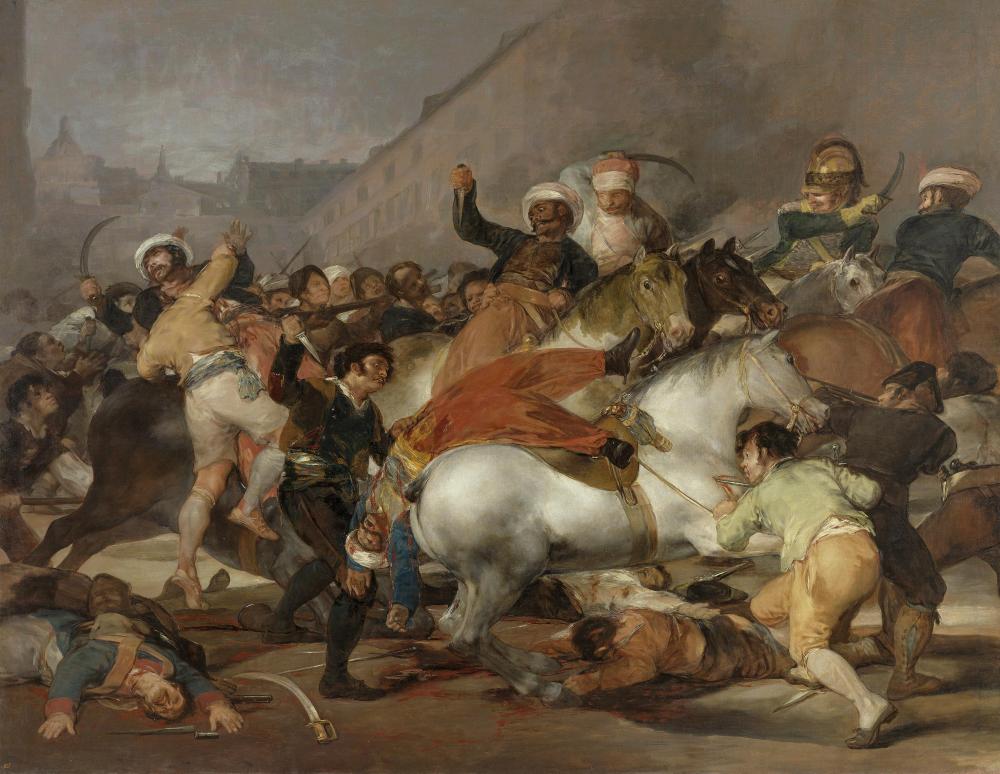Leaderboard
Popular Content
Showing content with the highest reputation on 05/16/2023 in all areas
-
Something for a somewhat unusual ensemble - Violin, Horn (Natural, in D and C), and Piano. Brahms wrote a Trio for this instrumentation, but other than that I don't know of any others. It was composed in 15 days in 2018. This piece was commissioned by Dr. James Hampson, a natural horn virtuoso. What is meant by "natural horn" is that the instrument does not have any valves. The valve mechanisms that horns have now were not invented until the 1830s, and even then did not catch on right away or universally; Brahms calls for natural horns in his works, and there is even a natural horn solo in Ravel's "Pavane for a Dead Princess," which he arranged for orchestra in 1910. Since my work is Classical in style, it is fitting that I composed the horn part for natural horn, as would have naturally been done around the year 1800. The part can just as easily be played on a modern horn with valves. Likewise, I envisioned that the piano part ideally should be played on a 5-1/2 octave fortepiano as would have been available starting in the mid-1790s. - Composed: May 18 – June 2, 2018 at Austin. - Style: Classical, ca. 1790-1800 - Duration: 17:25 I. Allegro assai (00:00) II. Andante piuttosto malincolico (07:00) III. Vivace alla Russa – Allegretto spiritoso alla Polacca – Tempo I (11:20) - Electronic Rendering by Finale 26 music notation software’s "Human Playback" with NotePerformer 3 artificial intelligence assisted interpretation.2 points
-
This particular fugue, whose final version has been transposed one half step down from the original, has been the result of a rapid burst of creativity that often comes and goes in waves around this time of the year. Even though it was finished before midnight two days ago, the thought process of deciding on an extramusical title has taken a little longer than usual this time. In the end, I have dedicated this humble work of mine to the marvellous and everlasting art of Spanish painter Francisco de Goya, in commemoration of his famous oil on canvas "The charge of the Mamluks" which, as we know, depicts the insurrection of the people of Madrid against invading Napoleonic troops in May 2nd 1808, this exact date 215 years ago. The title itself, which roughly translates as "The unrelenting night train" is meant to evoke the profuse skirmishes that took place before the Puerta del Sol as the French colonial cavalry charged against the revolting crowds, thus igniting the first instance of bloodshed in what would come to be the Spanish War of Independence. Here's a royalty-free picture of this iconic painting among Goya's many masterpieces: Following the continued advice of some among my audiences, who suggested relieving the density of the counterpoint at certain points within my fugues, I have finally decided to try out this method, et voilà! I honestly can only say I could not possibly be happier with the result. How stubborn I was in keeping the full weight of the contrapuntal texture throughout the vast majority of my works in spite of my dear viewers' counsel! Thankfully, the wall encircling my mind has now been breached by these new perspectives, which I will henceforth apply to upcoming future fugues of mine. Enjoy!2 points
-
@Rich: You flatter me extravagantly - but I'll take it! Thank you very much. @HtWinsor Thank you kindly! @PeterthePapercomPoser: Ha, I'm so glad you got a kick out of the Polonaise! You know, the historic and cultural antipathy between Russia and Poland never even occurred to me. I know that in Russia they used to like to dance the Polonaise though - Tchaikowsky wrote one of the best ever penned for his opera "Eugene Onegin - but other than that I can't think of much in the way of respect that Russia has ever paid to the Polish people, aside from coveting their land and resources - repeatedly. I think it has a lot to do with what are assumed to be the reasonable limits of amateur or student musicians. It may also be due in part to the fact that Finale assumes Horn in F when figuring range, but I'm not sure. Thanks for your comments and I'm glad you enjoyed the piece! @Carl Koh Wei Hao: Thanks! and yaayyyy, another thumbs up for the Polonaise, possibly my favourite part of the whole piece. Thanks for your compliments - I've been composing in Classical style since I was 9 years old, and I'm a lot older than most of you here, so I've been at it long enough! @Henry Ng Tsz Kiu: Thank you for yet another thoughtful and generous review! Those are supposed to be "hidden" - I didn't really want to specifically indicate pedaling to a live player, but only to direct Finale how to play it - but they still show up during playback. They are not in the final printed version. Yet another vote for the alla Polacca! Hooray! Thanks again Henry! I'm extremely busy, but I've been enjoying this more than I have at times in the past, so I may just keep coming back whenever I can.1 point
-
yis, gib handwriting manuscripts, luv I can see why you wanted to name it ballad though, it does have that sort of narrative I don't think I am nearly anywhere at that level of music and piano technique in 2012 (not that I have that either now, but I got to explore more pieces with time in my own time) Maybe it's because I feel busy all the time (keyword: feel), but I think this is a piece you can't enjoy unless you set aside other things in your life. Might come back to listen for real when I'm ready.1 point
-
Hi @olivercomposer, I think this makes good tralier music. The outer sections with vocals in g minor are quite similar and forward pushing; the middle instrumental section has more modulations for varieties and less dense instrumentation for rest. Thanks for sharing! Henry1 point
-
If you listen to nothing else of Hummel, please listen to his Piano Concerto in B minor, Opus 89 (1819). Here are links to a fine performance by my friend and colleague Andrew Brownell. You won't believe some of what goes on in this piece. Andrew said it was a real finger-buster! Apparently Hummel was one hell of a pianist, and a master composer - his teacher Mozart's star pupil, indeed! In my opinion, this is the greatest piano concerto ever written, greater even than Beethoven.1 point
-
Thank you Henry for taking the time to listen to my music and for your encouraging feedback. It means the world to me to share my odd, niche passion for galant music. Lol, my daughter is indifferent to my music, to classical music in general. She has my art talent but never developed her musical talent. My younger daughter however, I gave her one piano lesson and she said, yep, I get it, thank you. I've never taught her anymore and she improvises on piano and guitar except she likes modern music. You have an amazing ear! Yes, I thought e flat suited the theme better than D. When I play I record it using the record function on my digital piano, and then I will use my phone to record the playback. I found that I can avoid the clunky key mechanism of my piano that way. It's a Yamaha Arius. However because the kitchen and living room are open plan I can't avoid interruptions. Unless I told everyone shut TF up for 10 minutes, I'll try that next time 🙂1 point
-
Hi @J. Lee Graham, Thanks for listening and your lovely review! Unfortunately I've never studied his pieces. T know his is a real famous pianist and composer at his time but I never listen to his pieces at all. Do you have some suggestions of his works? I'm basically a Beethovanaian by the time I composed this piece which was 10 years ago (!). I only compose what I can play for piano haha. This piece has a real special meaning for me as it's the first ever work completed by myself with some artistic value. I had composed music before it but they could not be called a "work". The "( )' denotes something unspeakable for me, both literally and figuratively. In fact it was first called "( ) ballad" but later I found the word ballad redundant so I just deleted it: Yup the coda is considered unfit by many comments here. I agree on that but I will say I deliberately had it unfit to the general mood of the piece when composing since I wanted a heaven floated above the material world. Even the E major is chosen for that since it's the hexatonic pole of c minor, even though i didn't know the theory of hexatonic keys then. It's also hinted in b.16 but only to be stopped by c minor and had it fully realized in the coda. Thank you! I'm happy you love it! Henry1 point
-
For me I do think listening to Bach's fugal works the best way to learn fugal technique. I'm not to say Bachian fugue is the only approachable way or the standard of fugue but he absorbed all his predecessors' works and demonstrate much of the possibility of the perfect combination of technique and content in fugue. And for Bach's fugue the Well-Tempered Clavier is definitely a good starting point since it covers many styles and it's for keyboard, so it's easier to study for me! I find youtube videos more approachable with both audio and score, and here are the ones I love: Books on general counterpoint and specifically on fugue is important too. For counterpoint, Fux's Gradus ad Parnassum is a must read for species counterpoint: https://www.amazon.com/Study-Counterpoint-Johann-Joseph-Parnassum/dp/0393002772 Kennan's book on counterpoint is great: https://www.amazon.com/Counterpoint-4th-Kent-Kennan/dp/013080746X I love Jepessen's book on 16th century counterpoint since he specifies on counterpoint of Palestrina. If you want to know more on ars perfecta and prima pratica this will be a great book! https://www.amazon.com/Counterpoint-Polyphonic-Vocal-Sixteenth-Century/dp/048627036X Alfred Mann's The Study of Fugue covers many texts on fugal teaching: https://www.amazon.com/Study-Fugue-Dover-Books-Music/dp/0486254399 Hope this can help! I am still learning how to write a fugue myself so just keep going! Henry1 point
-
Well! Impressive! Intensely emotional and proto-Romantic-to-Romantic. This piece reminds me of Hummel in many places. Have you studied him at all? Some of the styling and virtuosic demands are reminiscent of him to me. In my opinion, titling this piece ( ) does it a disservice. This is a Fantasia. Might you consider renaming it? Again in my opinion, the final section in E doesn't quite fit. It might have been better to leave it in C minor or move to C major and end it similarly in that key. But these are minor quibbles. Whatever you do, or call the piece, it's a wonderful expression. My compliments!1 point





firstpage.thumb.png.d702794cb1f2ea711f66b8280892361c.png)